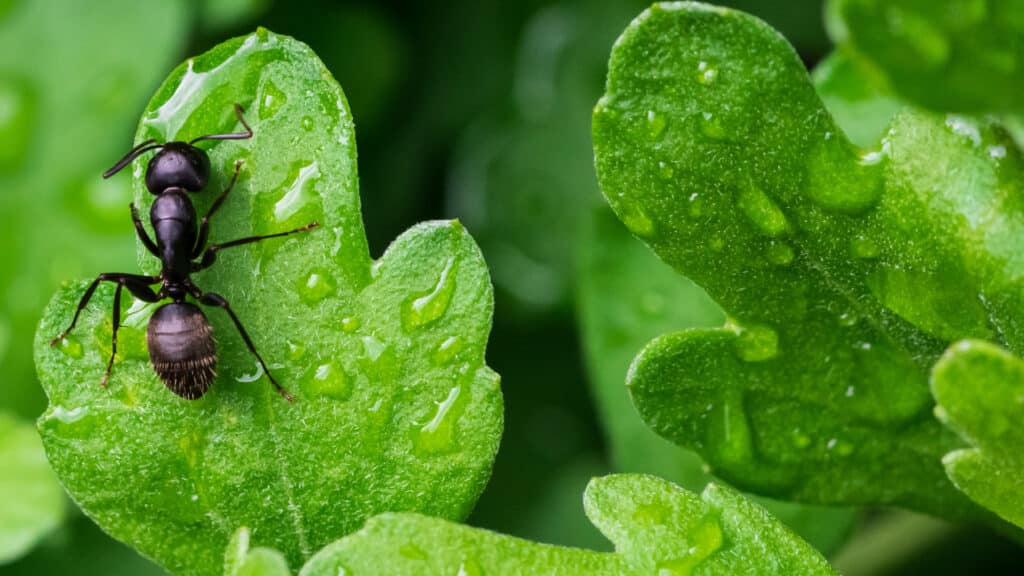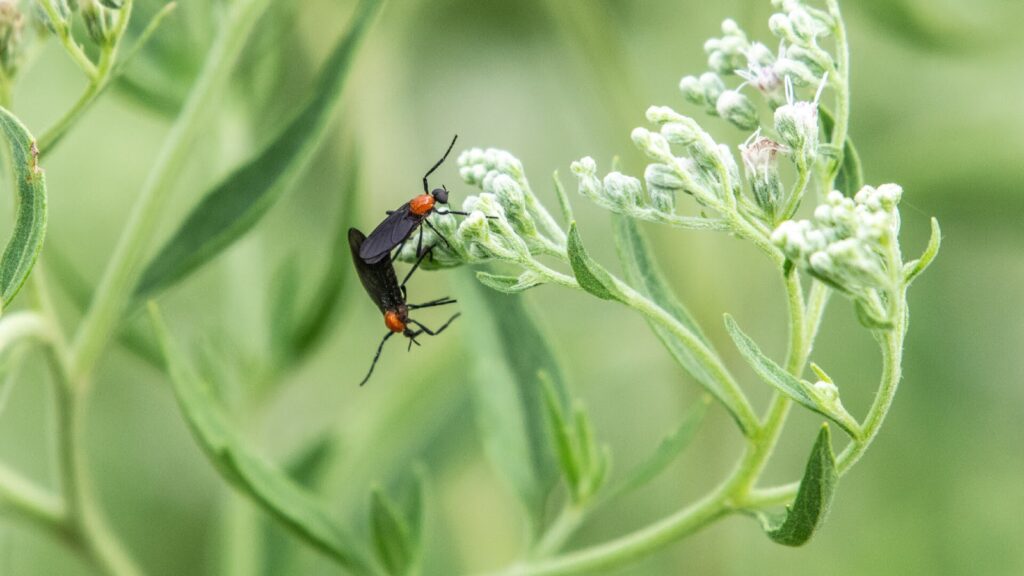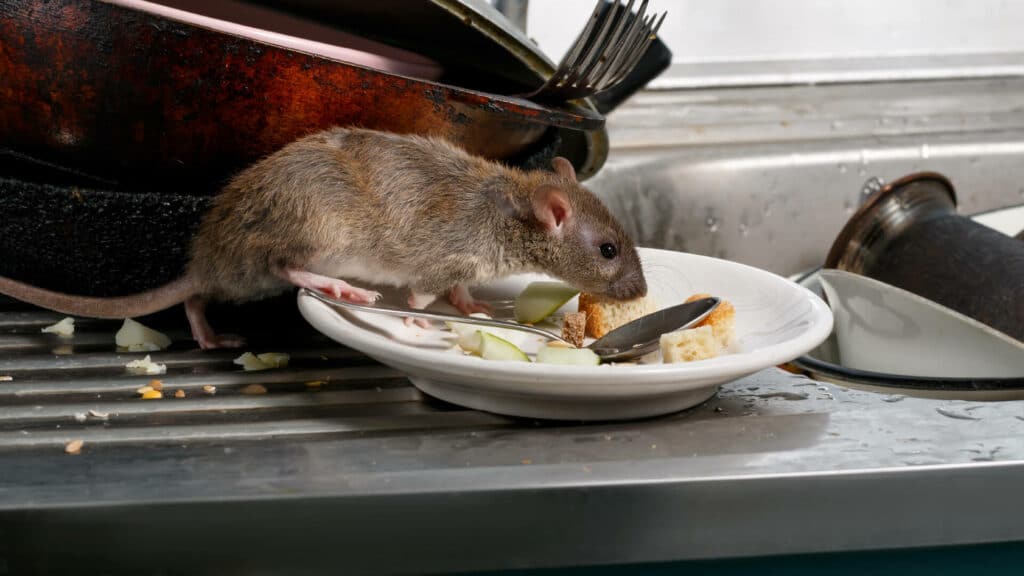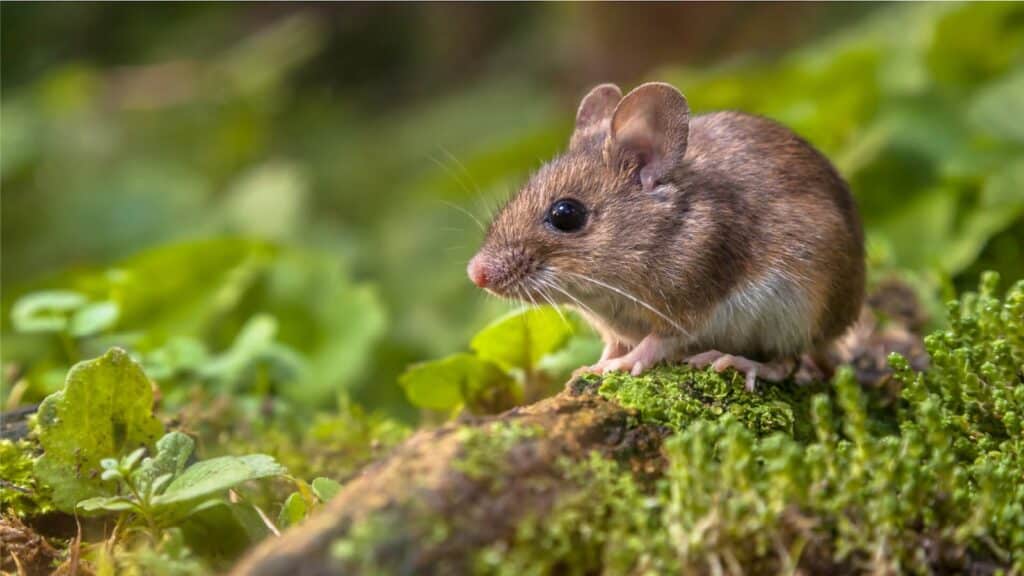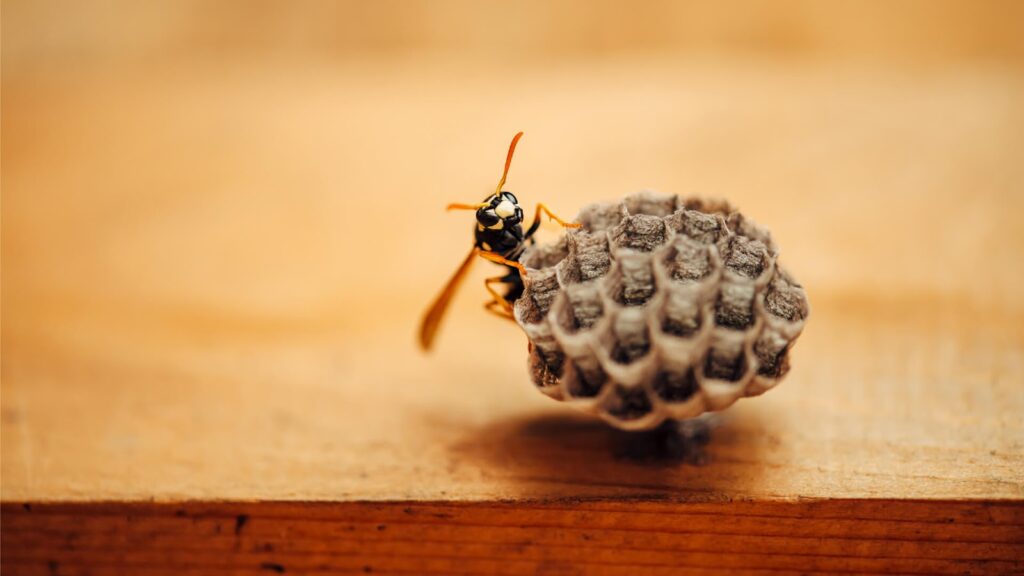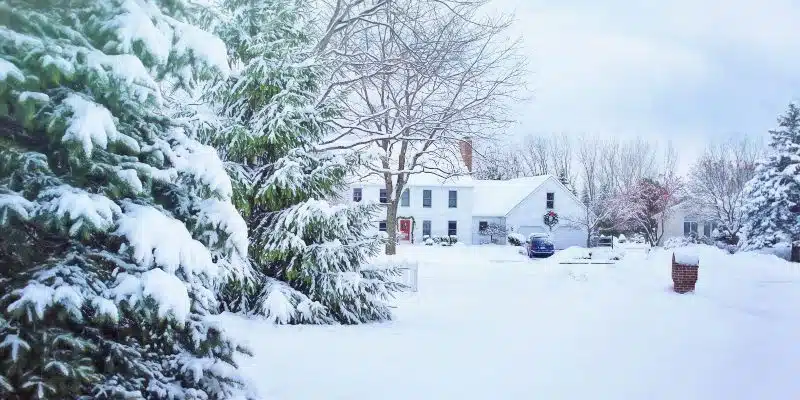Will the winter cold protect your home from bugs? While it might seem like there are less pests in the winter, some bugs and rodents remain active. Many of these pests start looking for shelter as soon as the weather cools and that can lead them into houses.
Individual pests react differently to the winter. Some bugs enter a dormant-like state called diapause. Others plan their reproductive cycles to allow them to lay eggs that will remain hidden during the winter and finally hatch in the warm spring.
Learn about which pests you can expect to see and which might be hiding in your home to stay warm.
How Do Bugs Know It’s Winter?
It’s easy to think that bugs respond to the changing temperatures when they start preparing for winter. After all, humans wait until it’s cold to bring the coats and hats out of the closet. But pests respond first to the shortening days. When the sun begins to set earlier and the nights become longer, pests know that winter is approaching.
Reproductive Cycle Timing
Some insects and other arthropods time their reproductive cycles to beat the winter temperatures. This lets their eggs overwinter safely before hatching. Other bugs time it so that they’re just entering the pupal or larval stage as winter sets in. This way, they can wait out the cold in a cocoon, burrow or other form of self-protection. Pupae that wait out the winter then emerge as adults in the spring.
Arthropods Don’t Like the Cold
Insects, spiders and most other pests are arthropods. While mice and rats are warm-blooded mammals, many other household pests—brown recluse spiders, cockroaches, grain beetles and more—are arthropods. Arthropods are invertebrate animals with segmented bodies (think of the segments of an ant’s body).
Arthropods are exothermic, which means they can’t produce their own heat. Therefore, survival depends on the conditions of the environment around them. If it’s too cold, their bodies will lose heat and they could freeze. Arthropods must find shelter or other ways of surviving the winter. Different pest species have developed various adaptations to achieve this. Unfortunately, some of them look for ways into homes and other buildings during the transition from fall to winter.
Different Types of Overwintering
Pests have different ways of spending the winter months sheltered from the cold. Some pests can survive simply by hiding in their nest, underground or in a building. Others enter diapause, an arthropod’s version of hibernation. Some pests even time their reproductive cycles so that they lay their eggs somewhere they’ll be safe for the winter. The eggs are ready to hatch when it becomes warm.
What is Diapause?
Diapause is when the insect reduces its body metabolism to a level where it can survive without eating or drinking for months at a time. For some pests, this condition also has to prevent their bodies from freezing.
When the shorter days signal to bugs that it’s time to prepare for winter, they start eating more to gain weight (specifically, to add fat) and to remove some of the water from their bodies. Holding water inside of them puts them at risk of freezing when temperatures drop into the twenties and below.
To further protect themselves against this, some insects produce the alcohol glycerol—which freezes at a much lower temperature—to push out the water and keep their bodies safe in severe cold.
Like mammals that hibernate, bugs entering diapause look for shelter in places that are protected from the elements. Unfortunately, while hollow tree trunks, large rocks, caves and tunnels provide adequate cover, so do attics, basements, sheds, garages and chimneys.
The bugs remain in this state until the weather warms sufficiently for them to emerge safely. Metabolism can drop to 1/10 of its normal state while the insect “sleeps” in this hibernation-like state. Wasps are a common pest that use diapause to wait out the winter.
Regional differences in the climate can affect when bugs enter and leave diapause or their indoor hiding spot. Though they rely mostly on the amount of daylight, a few early frosts can sometimes trick bugs into entering their diapause state early and emerging before temperatures are warm enough.
When Bugs Hide Indoors
The most unpleasant method (to humans, that is) that bugs use to survive the winter is fleeing indoors. This often means finding tiny cracks around windows, spaces under doors, chimney openings and other clever entrances into your home, garage or shed. The same things that make us feel comfortable and cozy in our homes during a big snowstorm or a windy winter day also feel like luxury to disruptive pests.
Food, humidity, moisture and water, easy, hidden shelter… these are all factors that make buildings—especially homes—perfect winter shelters for lots of pests. But rodent sightings and bug bites are still frightening and unwelcome in the winter.
Pests that Remain Active Indoors
Cockroaches
Cockroaches seem to be active all the time and in every region, climate and setting. Their favorite habitats are warm and humid, so bathrooms and kitchens frequently attract them. You won’t get winter bug bites from roaches but they can quickly contaminate eating and cooking surfaces.
Spiders
Spiders remain active during the winter, too. While roaches venture into areas prone to heavy foot traffic to scavenge, spiders don’t need to search for food. They wait in cluttered, low-traffic areas where other insects will wander into their webs.
You might not see spiders most of the time but they commonly hide indoors in the winter. When they build webs in the basement, closet or garage, you might notice them as you search for that scarf you packed away somewhere last spring. Though they aren’t aggressive toward humans, spiders will bite if touched or threatened.
Rodents
A rodent is another pest that’s active all year. Mice and rats don’t hibernate over the winter like other rodents (groundhogs, for example). But while they remain active, it becomes difficult to find food outdoors. And if pests are good at anything, it’s finding food.
Mice and rats are larger than most insects but they’re still capable of squeezing through surprisingly tiny openings in walls and doorways. During the cold months, more rodents might be looking for ways indoors, where crumbs and garbage offer easy access to food.
Ants
Some ants become inactive in cold weather. Fire ants hide in underground tunnels while Argentine ants can survive in the bark of some trees. But if they make it into a building, ants can remain active or overwinter in the walls where they might not be noticed until the infestation has grown.
Ticks
Ticks are dangerous pests that often become inactive in low temperatures. Ticks brought into a house can remain active, however. A tick infestation that emerges in the spring can quickly become a serious problem requiring professional pest control services.
Where to Look for Pests Indoors
It’s difficult to find pests that are overwintering in or around your house, especially those that are in diapause. Since they aren’t active, they’ll stay in their hiding place until the weather warms. However, that’s when things can get ugly.
While you enjoy the first hints of summer sun, the pests that have spent the winter in diapause in your walls, attic or crawl space begin to emerge to search for food. And as they wake up in their home or office, that’s the first place they’re going to search.
Winter Pest Protection Tips
How can you protect your home from bugs, rodents and other pests in the winter? And what should you do if you see an infestation emerging in the spring?
First, do a thorough inspection of your exterior walls, windows and doors. Seal any cracks or holes you find, even tiny ones. Keep trees and shrubs trimmed so that they don’t touch your house.
Maintain your regular cleaning habits. If you don’t provide easy access to food, pests will look elsewhere. Since you probably don’t want to change your garbage every day, using a lid can help contain the smell and keep pests out. If possible, store garbage outside your home and away from the walls until it’s picked up each week.
Call the Professionals at Aptive Environmental
If you notice bugs and rodents in or around your home during the colder months, call your local Aptive Environmental branch for a free quote on professional, effective pest control.
